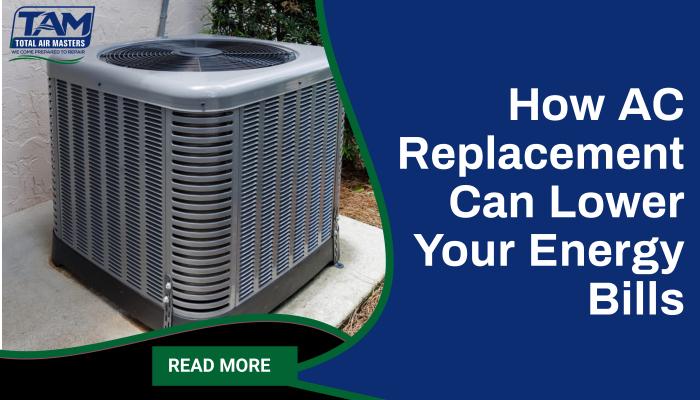
Upgrading to a new air conditioning unit can have a significant impact on your home’s energy efficiency. Old and inefficient AC units consume more power to cool your home, leading to high energy bills and a larger carbon footprint. By replacing an outdated system with a modern, energy-efficient unit, you can enjoy cooler indoor temperatures while saving money on your monthly utility costs.
Newer AC units use advanced technology to operate more efficiently. These modern systems are designed to provide consistent cooling with less energy. This means your home can stay comfortable during hot weather without the excess use of electricity. By switching to a more efficient model, you not only lower your energy consumption but also contribute to a more sustainable environment.
Moreover, the initial investment in a new AC unit can be offset by long-term savings on energy bills. With lower operating costs and fewer repairs needed over time, an energy-efficient AC unit proves to be a wise financial choice. In the following sections, we will explore the key features to look for in energy-efficient AC units, compare the monthly energy costs of old versus new systems, and discuss the additional benefits of upgrading your air conditioning unit.
How New AC Units Improve Energy Efficiency
New AC units are designed with advanced technology to improve energy efficiency significantly. One of the key ways they achieve this is through improved compressors. Modern compressors are better at adjusting cooling output to match the current conditions, which reduces energy use. In older models, compressors often run at full speed regardless of the actual cooling demand, leading to higher energy consumption. By contrast, newer units operate more intelligently, providing just the right amount of cooling needed to maintain comfort.
Another way new AC units boost energy efficiency is through better insulation and materials. Advances in manufacturing have led to the use of materials that contain and direct cooling more effectively. This means less energy is wasted, and your home stays cooler without the AC having to work as hard. Additionally, newer units come with high-efficiency motors and fans that consume less electricity while providing better airflow and cooling.
Key Features to Look for in an Energy-Efficient AC Unit
When shopping for an energy-efficient AC unit, there are several features we should consider to ensure we get the best performance and savings. One crucial feature is the SEER (Seasonal Energy Efficiency Ratio) rating. Units with a high SEER rating use less energy to achieve the same cooling output as those with lower ratings. We should look for units with a SEER rating of 16 or higher, as these are considered highly efficient by industry standards.
Another important feature is the presence of programmable thermostats. These allow us to set our AC to operate only when needed, reducing energy use during periods when cooling is not necessary. Additionally, variable-speed air handlers can adjust the flow of cooled air more precisely, improving comfort and efficiency. Energy-efficient AC units may also include smart technology that integrates with home automation systems, offering real-time monitoring and adjustments to optimize energy use.
As we consider these features, it becomes clear how newer AC units provide significant advantages in energy efficiency, contributing to lower monthly bills and a more comfortable home environment.
Clearing the Area Around the Outdoor Unit
Keeping the area around your outdoor AC unit clear is crucial for maintaining optimal performance. Debris, such as leaves, branches, and grass clippings, can obstruct the airflow to your unit, causing it to work harder and become less efficient. Regularly inspecting and clearing the space around the outdoor unit helps ensure that it has the ventilation needed to operate effectively.
To clear the area, start by removing any large debris from around the unit. Trim back any plants or bushes that are within two feet of the unit to allow for proper airflow. It’s also important to keep the unit itself clean. Use a garden hose with a gentle spray to wash away dirt and debris from the fins of the condenser coil, being careful not to bend the delicate metal fins. Regularly maintaining this area can help your AC run more efficiently and prevent overheating.
Scheduling a Professional AC Tune-Up
Even with regular DIY maintenance, scheduling a professional AC tune-up is essential for ensuring your system is prepared for the summer heat. During a tune-up, our technicians will perform a comprehensive inspection, cleaning, and servicing of your AC unit. This includes checking refrigerant levels, inspecting the electrical components, and ensuring the system is operating at peak efficiency.
A professional tune-up can identify and address potential issues before they lead to major breakdowns. It also ensures that your system is running as efficiently as possible, which can result in lower energy bills and a more comfortable home. Scheduling a tune-up before the peak summer season can give you peace of mind, knowing that your AC is ready to handle the hottest days of the year.
Conclusion
Getting your AC unit ready for summer involves a combination of regular DIY maintenance and professional servicing. By inspecting and cleaning air filters, checking thermostats and controls, clearing the area around the outdoor unit, and scheduling a professional tune-up, you can ensure that your air conditioner operates efficiently throughout the summer months. These steps not only enhance the performance of your AC but also extend its lifespan, helping you avoid costly repairs or replacements.
At Total Air Masters, we are dedicated to providing quality HVAC services to keep your home comfortable and efficient year-round. If you need assistance preparing your AC for the summer heat, don’t hesitate to get in touch with us. Our team is here to help ensure your system is in top condition. Contact Total Air Masters today to schedule a professional AC maintenance in Katy, TX and enjoy a cool, worry-free summer.
